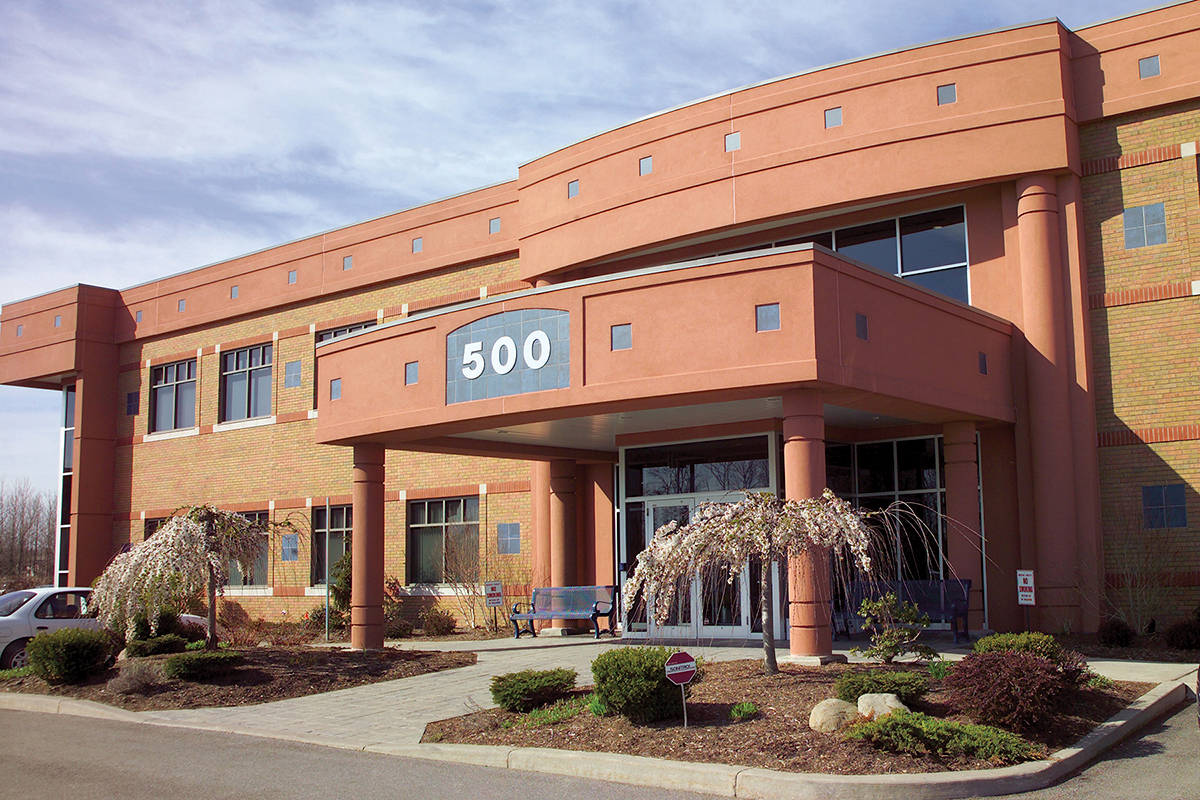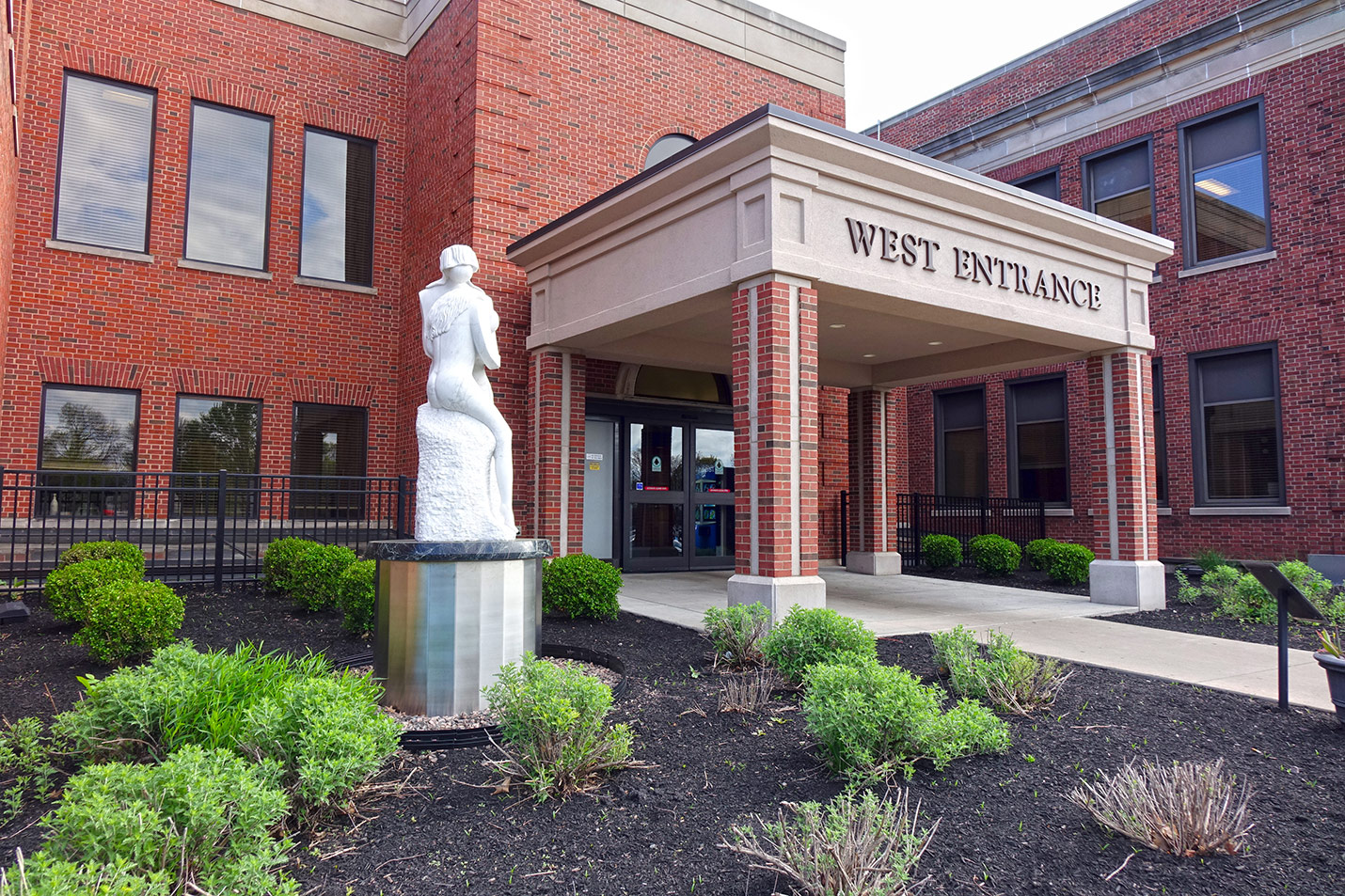Congenital Diaphragmatic Hernia
Make Appointments & Get Care
What is Congenital Diaphragmatic Hernia?
Congenital diaphragmatic hernia (CDH) occurs when the diaphragm, the muscle that separates the chest from the abdomen, fails to close during early development, leaving a hole. This is a rare condition, affecting only approximately 1,600 babies in the U.S. each year.
When there is a hole in the diaphragm, your baby’s abdominal organs (like the liver, bowel, and spleen) can move into their chest and compress their lungs. This may cause underdeveloped lungs or high blood pressure.
This is a highly complex disease with a wide variety of severity and outcomes.
How Are Congenital Diaphragmatic Hernias Diagnosed?
If you are referred for a suspected CDH, our team will perform a detailed Level II ultrasound. Your provider will measure the lung size, examine the position of the liver, and calculate a lung-to-head ratio (LHR).
This will help you and your provider understand the likelihood of complications after birth, as well as what follow ups are needed. You will be offered genetic testing, as some children with this condition will have a genetic disorder.
Ready for an Appointment?
Call (585) 487-3350UR Medicine's Treatments for Congenital Diaphragmatic Hernia
Our experienced Maternal-Fetal Medicine specialists at UR Medicine's Golisano Children's Hospital offer a complete range of diagnostic and treatment options to care for babies with congenital diaphragmatic hernias.
You will have a fetal echocardiogram with UR Medicine's Pediatric Cardiology team. If your baby’s heart is pushed to the side by the pressure from their abdominal organs, this test may be difficult.
Later in pregnancy, you will likely undergo a fetal MRI to look at your baby’s lung volumes.
Preparing for Birth with CDH
Our Perinatal Supportive Care team and dedicated CDH team will be ready to care for you and your child during and after birth.
Babies with CDH are at high risk for complications during and after delivery, and they will need to undergo surgery to close the hole in their diaphragm.
In some cases when the defect is large, especially when the liver is in the chest, special breathing assistance including ECMO (extracorporeal membrane oxygenation) is needed.
What Sets Us Apart?
This a very rare defect, affecting only 1,600 babies in the U.S. each year. Over the last five years, our teams have cared for more than 50 fetuses and infants with this condition—more than anyone else in the Rochester metropolitan area and surrounding region.
UR Medicine’s Golisano Children’s Hospital is the only center in the Rochester metropolitan area and surrounding region that offers neonatal ECMO services with a highly experienced and dedicated team for these critically ill infants.
Golisano Children's Hospital's Pediatric Surgery team has decades of experience operating on infants and children, and performs approximately 2,000 operative procedures each year with excellent survival rates and outcomes.
When you are facing a pregnancy with a complex condition, just making all the needed appointments can be overwhelming. As part of our care, our team of fetal and maternal care coordinators will ensure you receive all the information and support you need before and during delivery.
These care specialists can help with everything from:
- Coordinating referrals to UR Medicine’s specialists and experts
- Navigating appointment schedules
- Explaining complex testing and test results
- Planning for delivery
- Answering your questions at any point during your pregnancy
Locations
View All LocationsWe serve you in the Rochester metropolitan area and surrounding region.
View All Locations4 locations
Calkins Corporate Park (Red Creek)
500 Red Creek Drive, Suite 210
Rochester, NY 14623
Lattimore Medical Center
125 Lattimore Road, West Entrance, Suite 150
Rochester, NY 14620
Highland Perinatal Center
990 South Avenue, Suite 105
Rochester, NY 14620
Highland Perinatal Center
909 Culver Road
Rochester, NY 14609


